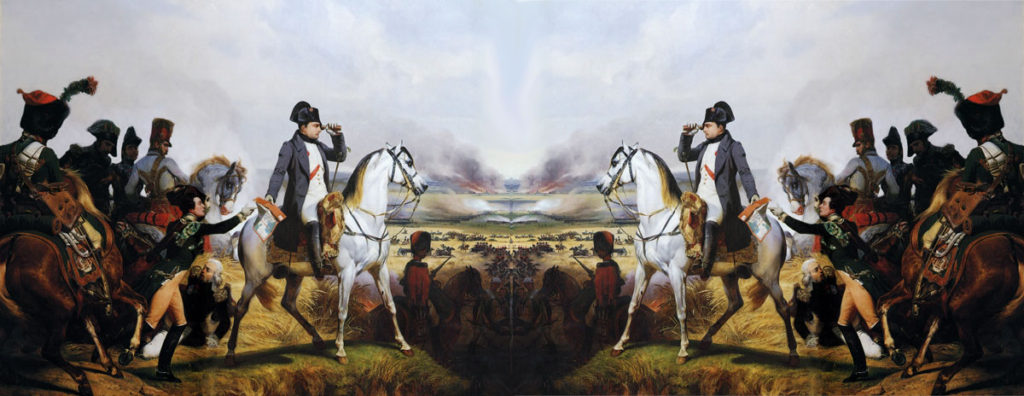
The crisis we’re going through now isn’t a struggle between right and left, but between illiberalism and liberalism, on both the right and the left.
It’s the latest battle in a war that has been going on for a very long time. It amounts to a struggle for control between two intolerant elites, each trying to exploit the rest of the population in service of its own self-serving worldview.
One illiberal worldview is an empire of will, tending towards fascism — domination by a strongman who supposedly embodies the spirit of the nation — and the other an empire of mind, tending towards communism — domination by a dictatorial government supposedly legitimized by a “science of history.”
Small-l liberals, whether on the left or the right, reject both forms of illiberalism in favor of a tolerant, inclusive worldview that allows for a wide range of opinions as long as they’re expressed nonviolently.
Illiberalism of either sort is intolerant and leads to violence as the only remaining resort when people refuse to agree with the “right answer,” whether that’s defined as the right-wing illiberal’s radical individualism or the left-wing illiberal’s radical collectivism.
For those of us on the liberal left fighting the intolerance of the right but puzzled by the intolerance we see in our own ranks, I think we need to recognize its history — and make a clean break with that history.
It’s descended from Marxism, through Western Marxism, through Critical Theory, with illiberal roots in the Marxist belief that history has a scientifically discoverable direction, and that therefore it’s possible to determine a “correct” ideology that will realize that direction. Although supposedly scientific, this amounts to a religious faith in a revealed truth, which all must recognize and embrace. It’s thus inherently intolerant, which is why wokeness seems so much like Puritanism. The very idea of being woke or, previously, politically correct, descends from the mistaken belief that people can “wake up” into a uniform, scientifically correct class consciousness: a belief that ends up being incompatible with freedom, and that fails on contact with reality.
The illiberalism of the right is much more about will, desire, and a more overt mysticism — this is why liberals of the right, who see themselves as a reasonable, find it so puzzling. Here, dominance is asserted by people of supposedly superior merit, which they possess by virtue of their blood and the soil of their native land. That’s what we see in Trumpism.
Trumpism is currently a much more immediate and dangerous threat to democracy than the intolerant left is. But the two factions are complementary, and even need each other, since each plays the role of the enemy that justifies the other’s struggle for control.
A near-perfect example of the clash between the illiberal right and left can be seen in the long-running battle over a Mexican-American history program in the Tucson Unified School District. On the one hand, much of the resistance to the program is obviously racist, as a federal judge found in a 2017 ruling against a state ban on it. On the other hand, complaints that the curriculum is Marxist are not as crazy or dishonest as they may sound — and as I at first assumed. One of the curriculum’s core texts was Paolo Freire’s classic Pedagogy of the Oppressed, which, while promoting now widely-endorsed ideas of participatory and culturally-relevant learning, also promotes Marxist revolution as the only true path to social justice. It’s foundational to what’s called critical pedagogy, a subset of critical theory.
To note this is not to accept the charge that the point of the curriculum, which appears to have done a lot of good, was Marxist indoctrination. And it’s certainly not to suggest there’s some mushy middle ground where we, say, negotiate over whether or not racism is OK. It is to say that liberals of both the left and the right are leaving a gap in which the extremists from each side can dominate very important debates.
The alternative to that is not the mushy middle. It’s what I would argue is a radical middle: liberalism. For all its flaws — and allowing for flaws is one of its greatest strengths — liberalism has yielded history’s greatest gains in human flourishing.
Victory in the struggle between illiberalisms depends on the domination of one worldview. Liberalism allows for multiple worldviews, and even for living in a state of total doubt. It does have a worldview of its own, but it’s one that’s minimally constrained by values of freedom, equality, and justice, which amount to the Golden Rule — not hurting each other. That appears in almost all cultures across time.
What changes is the definition of who’s included under the Golden Rule. Liberalism is the closest we’ve come to including everybody.